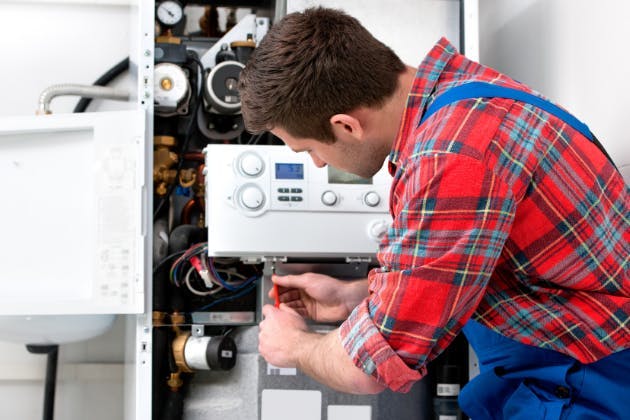Are you wondering about the longevity of your home's heating system? Whether you've recently invested in a new boiler or are considering a replacement, understanding the typical lifespan of a boiler is crucial for homeowners. In this comprehensive guide, we'll explore how long boilers last and share expert tips on extending their life expectancy.
The Average Lifespan of Modern Boilers
Today's boilers are designed to provide efficient heating for a considerable period. On average, a contemporary boiler can last between 10 and 15 years. However, it's important to note that this timeframe isn't set in stone. Various factors can influence your boiler's lifespan, including its quality, usage patterns, and maintenance.
If your current boiler is approaching the decade mark, it might be time to start planning for a replacement. Technology has advanced significantly in recent years, and newer models offer improved efficiency and environmental considerations compared to those installed a decade ago.

How to extend the lifespan of your boiler
While all boilers eventually need replacing, there are several steps you can take to maximise your system's longevity:
Annual Professional Servicing
One of the most effective ways to increase your boiler's lifespan is through regular professional servicing. Arranging an annual check-up with a Gas Safe registered engineer is not just a recommendation—it's often a requirement to maintain your warranty.
During a service, the engineer will inspect your boiler for any potential issues, ensuring it operates at peak efficiency. This proactive approach can identify minor problems before they escalate into costly repairs, ultimately extending your boiler's life.
Timely Repairs and Vigilant Monitoring
Stay attuned to your heating system's performance. If you notice any changes in operation or unusual noises, don't ignore them. Addressing issues promptly can prevent minor problems from developing into major breakdowns. Remember, even small irregularities can lead to significant repair expenses if left unchecked.
Powerflush
Over time, sludge and debris can accumulate in your central heating system's pipes, particularly in older boilers. This build-up can cause blockages and corrosion, leading to frequent breakdowns and significantly shortening your boiler's lifespan.
To combat this, consider having a powerflush service performed by a Gas Safe registered engineer. This process involves using a high-pressure chemical cleaning solution to clear out your heating system, potentially adding years to your boiler's life.
Avoiding Overwork
Pushing your boiler too hard can accelerate wear and tear. Ensure your boiler is appropriately sized for your home and of high quality to efficiently provide heating and hot water for years to come. Avoid setting the water pressure too high, as this can strain the system unnecessarily.
The Importance of Regular Maintenance Checks
In addition to annual servicing, performing regular maintenance checks can help ensure your boiler runs efficiently throughout its lifespan:
Pressure Monitoring
Regularly check your boiler's pressure to ensure it remains within the recommended range. Low pressure could indicate a leak or other issues requiring professional attention.
Radiator Maintenance
Bleeding your radiators can improve your heating system's efficiency by releasing trapped air. If your radiators aren't heating evenly, this simple task could be the solution.
Ventilation Checks
Ensure your boiler's flue remains unobstructed. Proper ventilation is crucial for both safety and efficient operation.
Need expert advice or assistance with your boiler?
Our team of Gas Safe registered engineers serving Bolton, Bury, Burnley, and surrounding areas are here to help. Contact us on 07791 802791 or use our online form for professional boiler service.


